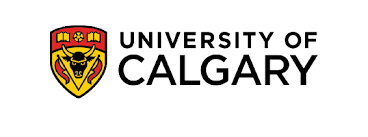University of Calgary: City-building research partnership positioned to catalyze downtown reinvention
The City of Calgary and the University of Calgary are excited to announce that The City is investing $350,000 as part of its partnership with the School of Architecture, Planning and Landscape’s (SAPL) Civic Commons Catalyst Initiative.
This investment will support Civic Commons Catalyst researchers as they focus on innovative solutions for economic recovery, downtown reinvention and impactful investment to transform both underutilized public and private space in Calgary’s downtown. This project is part of the Urban Alliance, a strategic partnership between The City and the University of Calgary.
“The transformation of downtown Calgary will yield benefits citywide for generations to come,” said Ward 7 City of Calgary Councillor Terry Wong at the announcement event.
We’re making an investment in the Civic Commons Catalyst because the University of Calgary brings both local and global expertise, along with a focus on innovation and the use of data and research to help address urgent issues Calgarians face daily.
“It is my hope that through holistic design-forward thinking and a greater focus on partnerships at the beginning of the process our downtown’s future can be even brighter, more inclusive of all Calgarian needs, and help make centre city the sustainable business core it has the potential to be.”
The City has placed a priority on this area of work through its office to residential conversion program, projects that are exploring how public space is utilized on Stephen Avenue and 8 Street S.W., and working with community organizations to activate and program public space.
“While it is the whole of civilization that finds itself at a critical inflection point, it is cities where these challenges will unfold. Therefore, cities must be the fulcrum upon which bold solutions are found,” said Alberto de Salvatierra, director of the Center for Civilization and assistant professor at SAPL.
From novel uses for retired LRT cars, repurposing 4th Avenue as a pedestrian community space, or investigating the viability of hydroponic food production in downtown towers, this partnership allows SAPL to bring all its expertise to bear, as it conducts research into these issues, formulates interventions, identifies how to activate solutions, and provides recommendations for The City’s Downtown Strategy team to foster bold interventions from design to viable projects.
Bringing in stakeholders like building owners, developers, policy-makers and civic leaders is the next step, and facilitates the potential of realizing these projects.
“This research partnership exemplifies the University of Calgary’s commitment to our community and the critical importance that design-based research plays in the shaping of great cities and societies. Downtown Calgary is facing unprecedented challenges from high vacancy rates and social vulnerability that is affecting the quality of life in our city,” said Dr. Ed McCauley, UCalgary president and vice-chancellor.
“The Civic Commons Catalyst reframes these problems to show how underutilized spatial assets can become opportunities for social, economic, and environmental innovation.
It is an important example of how great universities and great cities can work together.
The Civic Commons Catalyst Initiative will enable real change in Calgary’s downtown. Big data, design-at-scale approaches and an interdisciplinary collaborative approach come together ingeniously — so Calgary can unlock new future visions and sustain them.
“Through our research and teaching, the School of Architecture, Planning and Landscape has a long history of helping create a better future for Calgary. This new and historic long-term funding commitment for the Civic Commons Catalyst Initiative reinforces our partnership and ensures that the Catalyst will continue to help guide the rejuvenation of Calgary’s downtown,” said SAPL Dean John Brown.
The partnership between The City, SAPL, the Canadian Urban Institute and REEF is the first collaborative example to get kick-started through the Civic Commons Catalyst. REEF is the largest operator of parking real estate in North America, including more than 100 lots in Calgary. REEF works with community partners across Canada to reimagine under-utilized urban infrastructure to support healthy and thriving local communities.
A six-month pilot project will engage and gather input from downtown business owners, the real estate sector, academics and other local partners on their priorities for downtown Calgary. These findings will culminate in recommendations to transform locations within REEF’s real estate network to best meet pressing community needs.
“Calgary’s Downtown Strategy aims to support private investment, generate visits and spending downtown, while enhancing the quality of life for people who live, work, visit and learn in our downtown,” said Thom Mahler, director, Downtown Strategy for The City. “The Civic Commons Catalyst Initiative and SAPL are here to help harness the expertise of private sector innovators like REEF and of city-building thought leaders at the Canadian Urban Institute to help propel us further in realizing that vision.”
The announcement is also a preview of an exhibition showcasing the work the Civic Commons Catalyst has already conducted as part of its endeavour to make the core more sustainable, equitable, inclusive, vibrant and prosperous.
City of a Thousand Planets is an exhibition — at SAPL’s City Building Design Lab — that shares and makes public the Calgary-centred design research work from phase 1 and phase 2 of the Civic Commons Catalyst Initiative. Using digital renderings, 3D models and interactive offerings, the exhibit is a rich display of a vision for underutilized reimagined, repurposed and reactivated spaces for a bolder, more sustainable, environmentally conscious and vibrant downtown.
Phases 1 and 2 of the Civic Commons Catalyst Initiative were funded through a $460,000 grant by the Alberta Real Estate Foundation, while the current phase 3 is being funded through the Urban Alliance partnership.

